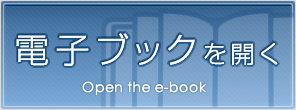「人道研究ジャーナル」Vol.2 page 106/276
このページは 「人道研究ジャーナル」Vol.2 の電子ブックに掲載されている106ページの概要です。
秒後に電子ブックの対象ページへ移動します。
「電子ブックを開く」をクリックすると今すぐ対象ページへ移動します。
概要:
「人道研究ジャーナル」Vol.2
The Journal of Humanitarian Studies Vol. 2, 2013あくまでもその国における活動が中心であり、その際、政府の人道分野における補助機関しとしての役割は、赤十字の人道的任務を遂行するうえで、重要である。このように、国際赤十字・赤新月運動においては、各国赤十字社はその属する国での活動を中心に行い、国際的な活動あるいはその調整はICRCおよびIFRCが主に担っている。赤十字全体としてはバランスがとれており、赤十字は全世界においてあまねく活動を行うことができる。これは、国際的な組織であるICRCおよびIFRCと国内的な面が強い赤十字社が存在するからである。したがって、国内活動に活動の中心をおく赤十字社は、その活動の内容を変化させながらも、政府の人道分野における補助機関としての役割を維持し、国内における活動の基盤を強化することが重要となろう。注(1) Allan Rosas,‘Notes on the legal status of National Red Cross Societies’, in Christophe Swinarski ed., Studies and essays oninternational humanitarian law and Red Cross principles in honour of Jean Pictet, Geneva/The Hague, International Committeeof the Red Cross/Martinus Nijhoff Publishers, 1984, 959-973, p. 959.ローザスはそのなかで、先行研究としてRichardPerruchoud, International Responsibilities of National Red Cross and Red Crescent Societies, Geneva, Henry Dunant Institute,1982を挙げている。なお、本論文において重要な文書などで日本語の定訳がないものについては、原文を本文あるいは脚注につけくわえた。(2)赤十字国際委員会、国際赤十字・赤新月社連盟、赤十字社に加えて、ジュネーブ諸条約締約国政府の代表が参加。(3)日本赤十字社『日本赤十字社社史稿第一一巻』東京、日本赤十字社、2011、p.46。(4) ICRC、連盟および赤十字社の赤十字関係諸機関の代表が参加。ジュネーブ諸条約締約国政府の代表は参加しない。(5)筆者訳。「戦略」の原文は以下のとおりである。“The nature of the relationship between States and National Societies isunique and offers many benefits to both parties. The National Societies’role as auxiliary to the public authorities is based oninternational humanitarian law (e.g. Geneva Convention I 1949, Article 26) and the Statutes of the Movement (e.g. Articles 3(1)and 4(3)). The auxiliary role gives National Societies a special status: they are, at the same time, private institutions and publicservice organizations. The Fundamental Principle of Independence stipulates that National Societies must always maintainsufficient autonomy so as to be able to act at all times in keeping with the Fundamental Principles. Moreover, the Movement’sStatutes indicate that National Societies, while retaining independence of action, should give priority to co-operation with othercomponents of the Movement. Thus, there needs to be an appropriate balance between the need for close relations between aState and the National Society of its country on the one hand, and the need to maintain the independence of the National Societyon the other. There is a need for clearer criteria for assessing whether this independence is fully observed.”http://www.icrc.org/eng/assets/files/other/strategy.pdf(2012年12月25日閲覧)(6)“A balanced relationship between States and National Societies”は、同報告書の第6章にその特色が解説されている。International Federation of Red Cross and Red Crescent Societies, National Red Cross and Red Crescent Societies as auxiliariesto the public authorities in the humanitarian field, Geneva, 2003, p.23-26.(7)『日本赤十字社社史稿第一一巻』p.47。(8)原文ではそれぞれ、Furthering the auxiliary: Partnership for stronger National Societies and volunteering development”、“balancedpartnership”である。http://www.rcrcconference.org/org/docs_upl/en/R4_Auxiliary_Role_NS_EN.pdf(2013年1月17日閲覧)。(9)同上。原文では、“related tasks, such as health and social servies, disaster management and restoring family links”。(10)赤十字規約については、日本赤十字社『日本赤十字社史稿』東京、日本赤十字社、1911、p.11-12を参照。(11) Christophe Lanord, The legal status of National Red Cross and Red Crescent Societies, IRRC, No. 840, 2000, http://www.icrc.org/eng/resources/documents/misc/57jqt9.htm(2012年4月28日閲覧)。(12)同上。(13)秋山雅之介「赤十字条約ト各国赤十字社事業トノ沿革関係ヲ論ス」『法政大学創立三十週年記念論文集』東京、法政大学、1909、p.37(327)。(14)同上、p.39(329)。(15)同上、p.40(330)。条約の正式名称は、「千八百六十四年八月二十二日「ジェネヴァ」条約ノ原則ヲ海戦ニ応用スル条約」。外務省ホームページ・条約データ検索http://www3.mofa.go.jp/mofaj/gaiko/treaty/index.php(2012年12月20日閲覧)(16)秋山、p.40(330)-41(331)。(17)条約の正式名称は、「戦地軍隊ニ於ケル傷者及病者ノ状態改善ニ関スル千九百二十九年七月廿七日ノ「ジュネーヴ」104人道研究ジャーナルVol. 2, 2013

